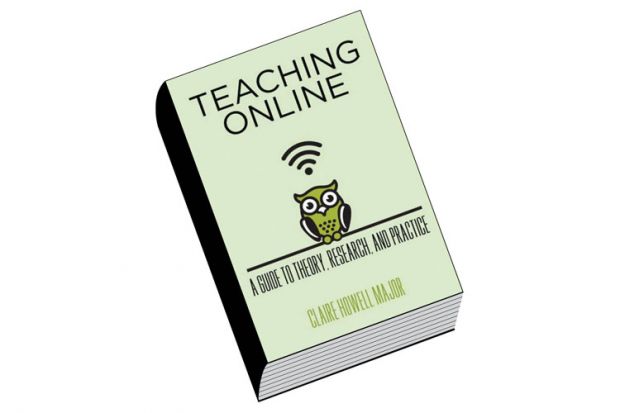Online learning: it’s the latest revolution in higher education, we are told, and it thrills the heart of every vice-chancellor and university director of finance in existence.
The argument goes like this. Campus-based learning has become very expensive, and student visas harder to come by. In a globalised, connected society, universities have a nifty workaround available to them in the form of teaching students online. A number of software solutions are available to facilitate this revolution. Online courses that use these packages are marketed as more exciting and modern than face-to-face courses. Students are encouraged to “build” knowledge with peers, supervised by tutors. The traditional model of allowing them to sit in massed ranks passively absorbing the jaded observations and bons mots of their professors is terribly pre-2000, dahling. Digital is the future. Sign here.
The reality can vary. At its best, you sit at home and converse on a forum with other committed students and a leading lecturer at a world-class university in a different time zone. You then collaborate with a small group on a bit of research or a piece of writing that you then present online, or post for scrutiny by others. By the end, everyone is a bit cleverer and better informed, including the lecturer. Everything is then archived for posterity.
Online learning has a dark side, however. This is a world where technology never works properly, software packages are clumsily designed for US mass undergraduate courses and never quite do what the lecturer wants, and your fellow course members never quite put in the collaborative effort that you seem to. It can be messy, unsatisfying and unpredictable.
Teaching Online, written by Clare Howell Major with “forty‑seven individuals who also contributed their own writings to the text”, is a well-intentioned book, made up of a huge number of short and relatively disconnected chapters highlighting different aspects of this anarchic learning world. (Arguably, this anarchy is reflected in the book, where poor-quality printing and design compound the confusion, as extracts and chapters chop and change at will with nary a slight shift in font to help the reader work out what on earth is happening when the text is left hanging for no apparent reason.)
At first glance, it is a decidedly upbeat overview, in which everyone is experimenting and doing worthwhile things. There are copious photographs of interesting classroom set-ups where online and offline groups learn in tandem, screenshots of talking heads and text pages and so on. The book also tries to pin down some of the pedagogy that underpins everyday practice, as well as some of the legal and social pitfalls that await the unwary lecturer. I can see it being useful for a continuing professional development course for those completely new to online teaching in universities.
Interestingly, however, it reveals more about the current state of play in universities through what it does not say. Yes, a strong contribution by Norbert Pachler discusses the reality of online learning and changed student expectations; yes, we have an excellent chapter 7 on changes to our understanding of instructional time; and yes, Bryan Alexander offers a very short piece on digital storytelling, which begins to offer a tiny glimpse of how people might choose to express themselves in different ways given a completely new medium, and the impact this could have on creativity. In addition, Stephanie Blackmon writes well about changes to the teacher persona and how to build this fruitfully in a digital world. Glaringly absent, however, is any editorial line on the politics and economics of online learning. Teaching Online floats in a kind of existential limbo, and I think it could have said less and done more for us.
Sandra Leaton Gray is senior lecturer in education, UCL Institute of Education.
Teaching Online: A Guide to Theory, Research, and Practice
By Clare Howell Major
Johns Hopkins University Press, 296pp, £19.50
ISBN 9781421416335 and 6243 (e‑book)
Published 22 May 2015
Register to continue
Why register?
- Registration is free and only takes a moment
- Once registered, you can read 3 articles a month
- Sign up for our newsletter
Subscribe
Or subscribe for unlimited access to:
- Unlimited access to news, views, insights & reviews
- Digital editions
- Digital access to THE’s university and college rankings analysis
Already registered or a current subscriber? Login




